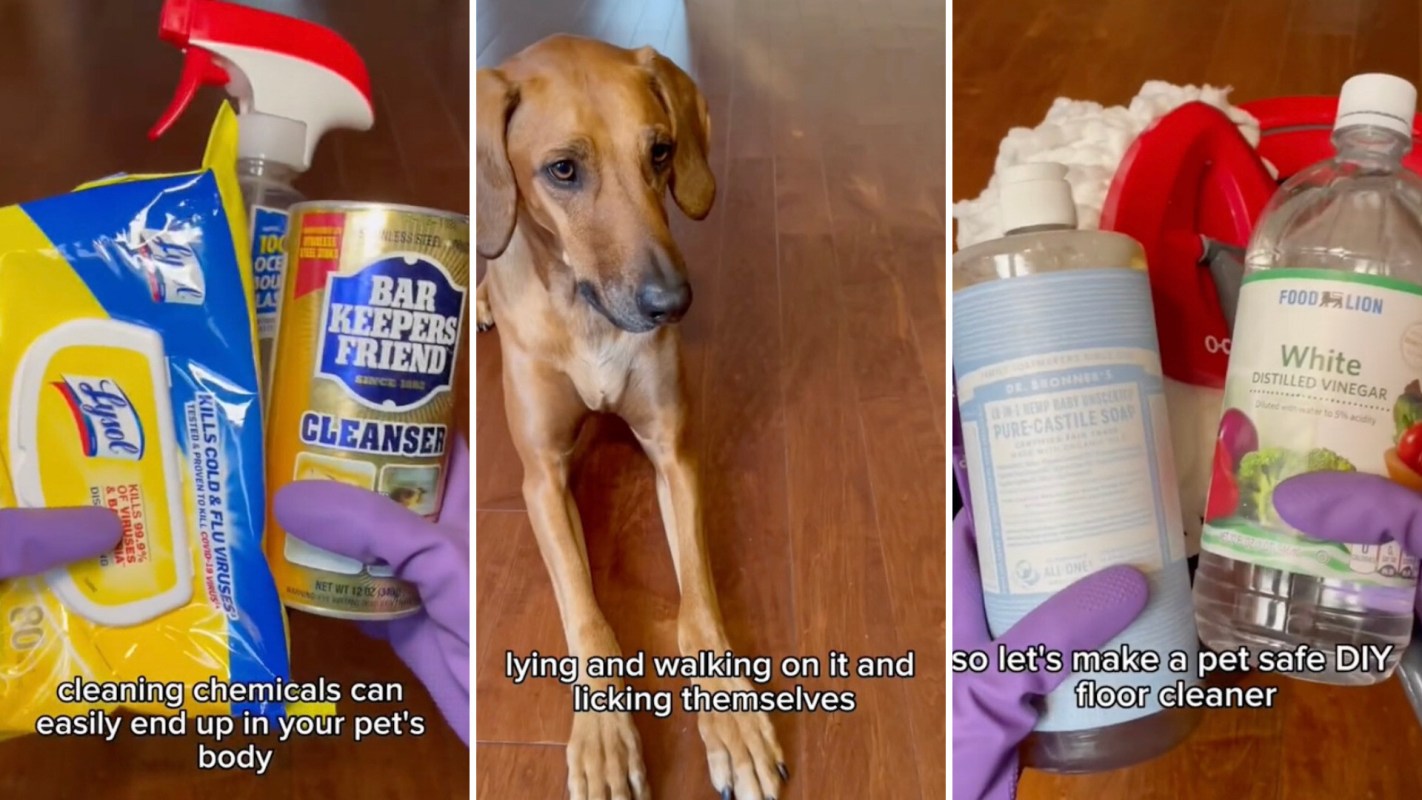We all want to keep our living spaces clean, especially when we have pets romping around. But the last thing that we would want to do is inadvertently hurt our pets with toxic floor cleaners.
One TikTok user has created a guide to cleaning your floors without toxic chemicals, providing a safer environment for pets. "If the cleaner is something you'd want to wear gloves while handling, you don't want it near your pets!" they wrote.
@vivarawpets As a general rule of thumb, if the cleaner is something you'd want to wear gloves while handling - you don't want it near your pets! What do you guys like to clean with? We're in the middle of switching out the cleaning products we use for some "cleaner" alternatives. Would love to hear what you guys recommend!
♬ original sound - Viva Raw
The scoop
"Cleaning chemicals can easily end up in your pet's body since they're always eating off the floors, lying and walking on it, and licking themselves," Viva Raw (@vivarawpets) explained to their 64,000 TikTok followers. "So, let's make a pet-safe DIY floor cleaner."
The formula is simple: one gallon of water, half a cup of white vinegar, a quarter cup of rubbing alcohol, and one teaspoon of Castile Soap. Just "mix it all together and mop away," Viva Raw said.
How it's helping
Not only is a chemical-free cleaner safer for your pets, it's better for you as well — average use of household cleaning products can expose you to almost 20 pounds of toxic chemicals per year.
It's also better for your wallet, as making your own natural cleaning products at home can save around $90 per year.
Even better, eschewing products like commercial floor cleaners will cut down on your single-use plastic consumption. Nearly all household cleaning products come in plastic containers, most of which are not particularly versatile or easy to reuse.
And a ton of natural, homemade cleaners contain configurations of the same basic ingredients listed above. White vinegar, for instance, can be used for everything from getting towels fluffier to cleaning your sink faucets. Castile Soap can be used for everything from homemade laundry detergent to getting rid of garden pests.
What everybody is saying
Dr. Bronner's, the maker of Castile soap, shared some additional advice about how to get the most out of your homemade cleaning product. Since Castile Soap is a base and vinegar is an acid, mixing them directly means they can cancel out each other's effects.
🗣️ Which eco-friendly initiative would make you most likely to buy products from a clean beauty brand?
🔘 Using less plastic packaging 🗑️
🔘 Using more organic ingredients 🌿
🔘 Recycling empty containers 🫙
🔘 I don't buy clean beauty products 🚫
🗳️ Click your choice to see results and speak your mind
Instead, Lisa Bronner — who is the granddaughter of soapmaker Dr. Emanuel Bronner — recommends using the soap to clean and the vinegar as a rinse agent, writing: "Castile Soap and vinegar are a fabulous one, two punch. One after the other. Not at the same time."
Join our free newsletter for easy tips to save more, waste less, and help yourself while helping the planet.









